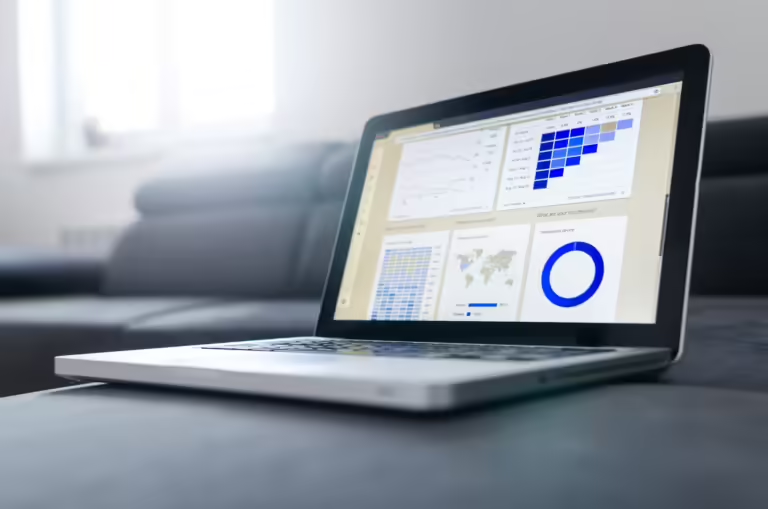One of the most crucial steps to achieving financial success is tracking your expenses. It may seem like a tedious task, but understanding where your money goes each month is key to managing your finances, saving for future goals, and avoiding debt. By keeping an eye on your spending, you can take control of your financial habits, identify areas for improvement, and make informed decisions. Here’s why tracking your expenses is so important and how you can start today.
Why Tracking Your Expenses Matters
- Build Awareness of Your Spending Habits
Most people don’t have a clear understanding of where their money goes. Tracking your expenses creates awareness of your spending habits, allowing you to identify patterns and areas where you may be overspending. This is especially important for discretionary purchases like eating out, entertainment, or impulse buys, which can add up quickly without you realizing it.
By knowing exactly how much you’re spending and on what, you can make conscious decisions about your finances and adjust your behavior accordingly.
- Create a Realistic Budget
A budget is the cornerstone of good financial management, but you can’t create an effective budget without knowing how much you’re spending. Tracking your expenses provides the data you need to set realistic spending limits in each category, such as housing, transportation, groceries, and entertainment.
Once you have an accurate picture of your income and expenses, you can create a budget that aligns with your financial goals—whether it’s saving for a vacation, building an emergency fund, or paying off debt.
- Prevent Overspending and Debt
One of the most significant benefits of tracking expenses is that it helps you avoid overspending. It’s easy to swipe a credit card without considering the long-term consequences, but when you track every purchase, you become more mindful of how each transaction affects your financial health.
If you consistently spend more than you earn, tracking expenses will give you a wake-up call. By seeing exactly where your money is going, you can rein in unnecessary spending and avoid accumulating debt.
- Identify Savings Opportunities
When you track your expenses, you can pinpoint areas where you can cut back and save more. For example, you might notice that you’re spending a significant amount on dining out or unused subscriptions. By reducing or eliminating these expenses, you can free up more money to put toward savings or investments.
Additionally, tracking expenses helps you identify “hidden” costs, like small fees or recurring charges that you might have forgotten about. These small expenses can add up over time, so finding and eliminating them can boost your savings efforts.
- Stay on Track with Financial Goals
Whether you’re saving for a down payment on a house, paying off student loans, or planning for retirement, tracking your expenses is essential for staying on track with your financial goals. By monitoring your spending and comparing it to your budget, you can ensure that you’re making progress toward your goals each month.
Tracking expenses also helps you make adjustments when necessary. If an unexpected expense arises, you can see where to cut back temporarily to keep your financial goals on track.
How to Start Tracking Your Expenses
Now that you understand why tracking your expenses is important, let’s explore some simple steps to help you get started.
- Choose a Tracking Method
The first step is to decide how you want to track your expenses. There are several methods, so choose one that suits your preferences and lifestyle:
- Manual Tracking: If you prefer a hands-on approach, you can use a notebook, spreadsheet, or budgeting template to record your expenses manually. This method requires you to write down each transaction and categorize it, but it gives you full control over the process.
- Budgeting Apps: Many people find it easier to track expenses using budgeting apps like Mint, YNAB (You Need a Budget), or PocketGuard. These apps link to your bank accounts, credit cards, and other financial accounts to automatically track and categorize your spending.
- Bank Statements: If you don’t want to use an app, you can track your expenses by regularly reviewing your bank and credit card statements. Many online banking platforms categorize your transactions, making it easy to see where your money is going.
- Gather Your Financial Information
Once you’ve chosen your tracking method, gather all your financial information, including bank statements, credit card bills, receipts, and any other documentation that shows your spending. Be thorough, as it’s important to have a clear picture of all your expenses.
If you’re starting fresh, begin by tracking all your expenses moving forward. For a more comprehensive view, look back at the past few months of spending to understand your patterns and habits.
- Categorize Your Expenses
The next step is to categorize your expenses. Common categories include:
- Housing (rent or mortgage)
- Utilities (electricity, water, gas)
- Groceries
- Transportation (gas, public transit, car payments)
- Debt payments (credit cards, loans)
- Entertainment
- Dining out
- Health and wellness
- Savings and investments
- Miscellaneous (subscriptions, gifts, etc.)
By grouping similar expenses together, you’ll have a better idea of where your money is going and how much you’re spending in each area. Be honest with yourself during this process—it’s important to capture every expense, even the small ones.
- Track Regularly
Consistency is key when it comes to tracking expenses. Make it a habit to review your spending on a daily, weekly, or monthly basis. If you’re using an app, you can easily check your spending as transactions are updated in real time. For manual tracking, set aside time each week to record your expenses and update your budget.
Tracking regularly will help you stay mindful of your spending and catch potential issues before they become problems. It also makes budgeting easier, as you’ll have an up-to-date snapshot of your finances at all times.
- Review and Adjust
At the end of each month, review your tracked expenses and compare them to your budget. Are there areas where you overspent? Did you stay within your limits? Use this information to adjust your budget if necessary, and set new spending goals for the next month.
Regularly reviewing your spending helps you stay on top of your finances and allows you to make adjustments based on your needs, lifestyle changes, or financial goals. This step is essential for improving your financial habits over time.
Final Thoughts
Tracking your expenses is one of the most effective ways to take control of your finances and achieve your long-term goals. By knowing exactly where your money goes each month, you can create a realistic budget, prevent overspending, and identify opportunities for saving. It also helps you make informed decisions that align with your financial priorities.
Whether you choose to track manually or use a budgeting app, the key is to be consistent and honest with yourself. Start small, track regularly, and you’ll soon find yourself with a clearer understanding of your financial picture, ready to take charge of your money and your future.





 GOOGL
GOOGL  META
META
Leave a Comment